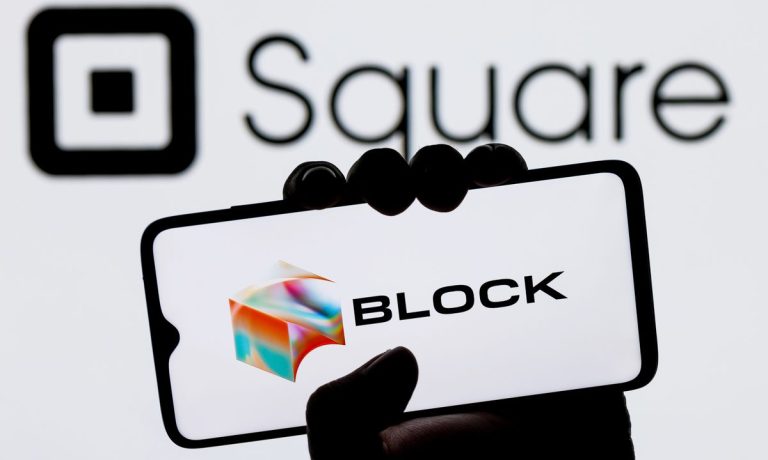Block’s Dorsey Says It’s ‘No Longer Just a Payments Company,’ But They Remain Its Core Focus

Speaking at the first Block investors day in five years, CEO Jack Dorsey’s main goal was to show that Block is “no longer just a payments company.”
But if you start digging down into what he’s saying and doing, that argument has a “yes, but” aspect to it when he tries to explain what Block actually is.
Dorsey and others used the term “ecosystem” over and over to explain the firm that began life as a card reader maker and evolved into a company that calls itself “two massively scaled ecosystems: one for sellers and one for consumers.”
In one sense, he’s right: Block does a lot more than just moving money from point A to point B. A number of the software services it offers are well outside the scope of payments. These range from things like loyalty, customer relationship management and email marketing to more bank-like services such as direct deposit and lending, as well as bitcoin and fractional stock exchange services.
But in a larger sense, Block is still a company that is largely focused on managing, controlling and connecting revenue streams for consumers and commercial enterprises. And if you pull back and look at it from this broader perspective, Block is still a payments-centric company.
It is also one with a very blockchain-centric focus that goes well beyond Dorsey’s early and vigorous support of bitcoin as the best and only effective payments cryptocurrency — which was, after all, designed with the goal of removing intermediaries from the payments process.
Nothing makes that clearer than what Block is doing to take advantage of those two ecosystems.
“The more connections between our ecosystems we create, the more resilience our overall company enjoys,” Dorsey said. “Very few companies have both sides of the network that we have at Block.”
And there are synergies, Dorsey said, pointing to the way Block’s payroll product can work with Cash App’s direct deposit to get employees their pay faster.
After looking at the way those ecosystems could connect, he added, “we knew we had a model that would allow us to create new ecosystems, serving new audiences. We chose three to start: Musicians, and the Bitcoin ecosystem of developers and consumers.”
Buying Into It
When Dorsey mentioned musicians, he was referring to the company’s purchase of Tidal, Jay-Z’s music streaming business. But it’s also worth looking at Block’s recent purchase of buy now, pay later firm AfterPay, for a clearer view of the payments-centric view of the firm’s future.
The Tidal purchase, Dorsey said, was based on the view that artists and creators are similar to small businesses. But there’s a a significant gap in the tools they use to sell their works and to get paid, he added.
Predicting that the “creator economy” will expand massively as AI takes over more mundane jobs, Dorsey said Block saw “an opportunity to be a big part of it all using the tools and platform we’ve already built.”
As for BNPL firm AfterPay, it connects the consumer payment tools of Cash App with those designed for sellers, Dorsey said, providing “a new way for sellers to grow sales and new discovery methods for people on Cash App.”
As PYMNTS’ Karen Webster noted when the AfterPay deal was announced last year, many in the payment’s industry considered it an unlikely pairing.
But “for students of platform strategy and ignition, the acquisition makes perfect sense,” she wrote.
See also: What the Square Afterpay Deal Means for BNPL, FinTech, BigTech and Banks
Saying Dorsey’s ambition has long been “to create a consumer/merchant network… that could leverage connected devices, digital payments, the cloud and data to reinvent payments and commerce for consumers and the small merchants where they shopped,” Webster called the deal an opportunity for the company “to scale a two-sided, multichannel payments, commerce and financial services ecosystem.”
In other words, both Tidal and AfterPay allow Block to take control of those payments channels by directly connecting sellers — the artists — and buyers via their own their two ecosystems.
Building Bitcoin
“We see bitcoin as an extraordinary trend towards an open standard for global money transmission,” Dorsey said. “Our reason for starting this company was to help people access the financial system… [as it] shifted from in-person to digital commerce. And while it’s much more global, it’s still exclusionary closed and controlled by a few corporations. It’s still leaving people behind.”
Fixing that requires an Internet-centric payments rail that bypasses those financial intermediaries, and bitcoin is the best way to do that, Dorsey argued.
In order to broaden participation in the global financial system, he said, you need “a standard that’s inclusive, trusted, and scalable to the entire population. You’ve likely heard that blockchain and crypto do just that.”